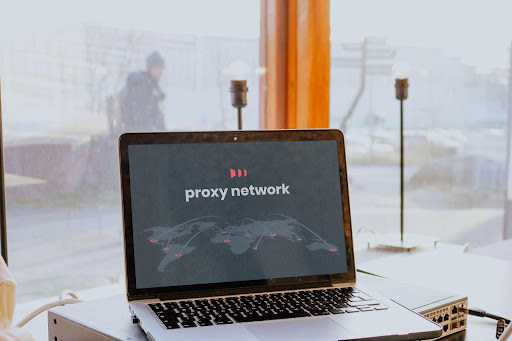You might be slightly overwhelmed if you’ve started looking into proxies to add an extra layer to your online security. There are so many different types these days, and it can become challenging to find the best proxy for yourself or your business. How do you decide which one is the best for you, from private to datacenter proxies and even social media proxies?
This article will explore what a private proxy is and what makes it different from other proxies. We’ll also look at why you should start using them and some of their benefits.
In this article about private proxies, we’ll be covering the following topics:
- What is a private proxy?
- The difference between private and shared proxies
- Why use private proxies?
What Is A Private Proxy?
A private proxy provides you with a dedicated IP address that’s only assigned to you. Proxies are often used to provide online anonymity to prevent censorship, surveillance and bypass geo-restrictions. Private proxies add an extra layer of privacy to your use. You don’t have to be concerned about other proxy users and what they might use the same IP address for or which sites that particular IP might already be banned from because of another user.
The Difference Between Private And Shared Proxies
When it comes to proxies, there are two main types known as residential and datacenter proxies. A residential proxy uses the IP addresses from real devices and includes them in their pool, whereas datacenter proxies are randomly generated and not linked to a real device. Residential proxies are less likely to raise suspicion as they look like real users, but they’re also a bit more expensive than datacenter proxies.
Each of these can further be divided into private (dedicated) proxies or shared proxies. As the name suggests, with shared proxies, a group shares the available IP addresses, meaning that you could be using the same IP address as another user. This also means that if another user got the IP blocked on a certain site, you might also be blocked if using the same IP. Private or dedicated proxies allocate an IP address from the pool to you and only you. This IP address is not shared with any other users, and as such, they provide more privacy and control.
Proxies are also now being used for dedicated purposes, such as location-based proxies that use IP addresses within a specific country to make it appear like you’re accessing the internet from within that country. Or social media proxies that are virgin proxies on that platform, meaning that no accounts have ever been created using that particular IP address. There are also others that are specifically used to perform a certain task. However, all these variations would still be either shared or dedicated – so make sure to check that before deciding on the proxy you want to use.
Why Use Private Proxies?
There are many reasons why people may prefer using a private proxy. Private proxies are ideal for situations where you need the added anonymity provided by a dedicated IP address. For example, if your business uses web scraping tools to gather information for marketing and other purposes, you don’t want to use a shared IP address where some websites may be blocked or banned. This could lead to inaccurate or incomplete data.
Another use of a private proxy would be for social automation. Automation is essential if your social media platforms need a bit of a boost to get your content seen by more people. However, your automation tools need to be connected to proxies to work effectively without getting banned. Using a private proxy will eliminate a lot of stress, as you’ll know that the IP address associated with your automation tools hasn’t been banned because other users used them on these platforms.
Benefits Of A Private Proxy
Now that we know more about what a private proxy is and how they’re used, we can start looking at some of the benefits of using a private proxy as opposed to other proxies:
- They provide more privacy and security
- Can access data from multiple locations, avoid geo-blocks
- They are faster than shared proxies
- They are more reliable than shared proxies
Final Thoughts
It may seem overwhelming to choose the right one when it comes to proxies because there are so many. But if you’re looking for added security, privacy, and an IP address that’s just yours, a private or dedicated proxy is the way to go. If you’re ever unsure, don’t hesitate to reach out to your potential proxy provider, as they can help you choose the best one for your needs.





